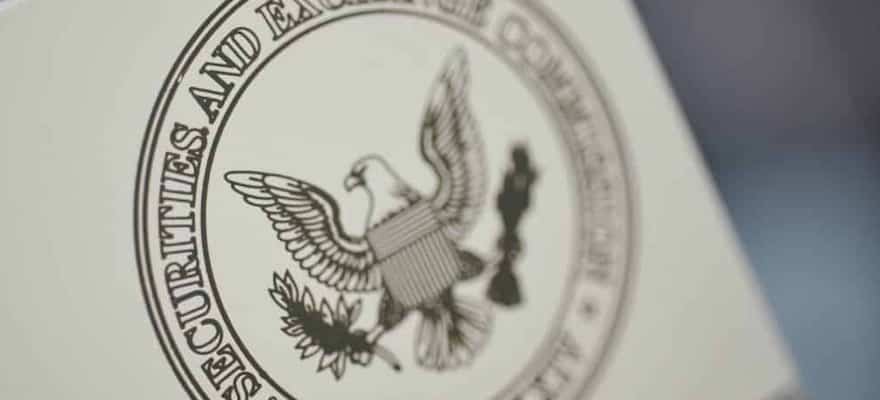The US Securities and Exchange Commission (SEC) today announced a more than $1.0 million award to a Whistleblower who provided information assisting in an enforcement action against a registered entity that its law violations impacted retail customers. This brings the whistleblower program’s total endowment to approximately $162 million awarded to 47 whistleblowers since issuing its first award in 2012. Committed to protecting the anonymity of informants, the SEC did not disclose the individual’s identity or the involved organization. The regulator discloses no information that could directly or indirectly reveal their identity. However, the SEC acknowledged that the whistleblower’s original information alerted the agency to a case of fraud. Jane Norberg, Chief of the SEC’s Office of the Whistleblower said that anonymous tipsters can provide a wealth of information and ongoing assistance that helps the top US regulator bring enforcement actions quicker and more efficiently. This whistleblower not only helped the SEC open the case, but also provided timely ongoing assistance along with critical documents and testimony that accelerated the pace of its enforcement action Whistleblowing has become a staple of multiple US regulatory regimes, namely those of the US Commodity Futures Trading Commission (CFTC) and the SEC. Both entities have deployed programs or rewards to individuals in a bid to help support or streamline investigations. When the Congress passed the legislation six years ago, it was faced with considerable opposition from big firms as they argued that it would hurt their compliance programs and create financial incentives for their staff to identify misconducts instead of reporting the issues to their management. Nonetheless, the whistleblower-reward scheme has proved to be an unmitigated success in enabling the nation’s regulators to discover fraud cases and protect investors. SEC enforcement actions from whistleblower tip-offs have resulted in nearly $1 billion in financial penalties from wrongdoers since the program’s inception in 2011. Whistleblowers who voluntarily provide information to the Commission leading to a successful enforcement action of $1 million or more, are entitled to between 10 and 30 percent of the money that the SEC recovers from those sanctions.
The US Securities and Exchange Exchange An exchange is known as a marketplace that supports the trading of derivatives, commodities, securities, and other financial instruments.Generally, an exchange is accessible through a digital platform or sometimes at a tangible address where investors organize to perform trading. Among the chief responsibilities of an exchange would be to uphold honest and fair-trading practices. These are instrumental in making sure that the distribution of supported security rates on that exchange are effectiv An exchange is known as a marketplace that supports the trading of derivatives, commodities, securities, and other financial instruments.Generally, an exchange is accessible through a digital platform or sometimes at a tangible address where investors organize to perform trading. Among the chief responsibilities of an exchange would be to uphold honest and fair-trading practices. These are instrumental in making sure that the distribution of supported security rates on that exchange are effectiv Read this Term Commission (SEC) today announced a more than $1.0 million award to a Whistleblower Whistleblower A whistleblower is an individual who manages to provide information or activity within a private or public organization that is deemed illegal, unethical, or not correct. In many countries, including the United States, whistleblowers are protected by law and in some cases can even recoup rewards if their information leads to successful prosecution.In the context of the financial services industry, whistleblowers play a large role in oversight, helping unmask several episodes of illicit behavior A whistleblower is an individual who manages to provide information or activity within a private or public organization that is deemed illegal, unethical, or not correct. In many countries, including the United States, whistleblowers are protected by law and in some cases can even recoup rewards if their information leads to successful prosecution.In the context of the financial services industry, whistleblowers play a large role in oversight, helping unmask several episodes of illicit behavior Read this Term who provided information assisting in an enforcement action against a registered entity that its law violations impacted retail customers. This brings the whistleblower program’s total endowment to approximately $162 million awarded to 47 whistleblowers since issuing its first award in 2012. Committed to protecting the anonymity of informants, the SEC did not disclose the individual’s identity or the involved organization. The regulator discloses no information that could directly or indirectly reveal their identity. However, the SEC acknowledged that the whistleblower’s original information alerted the agency to a case of fraud. Jane Norberg, Chief of the SEC’s Office of the Whistleblower said that anonymous tipsters can provide a wealth of information and ongoing assistance that helps the top US regulator bring enforcement actions quicker and more efficiently. This whistleblower not only helped the SEC open the case, but also provided timely ongoing assistance along with critical documents and testimony that accelerated the pace of its enforcement action Whistleblowing has become a staple of multiple US regulatory regimes, namely those of the US Commodity Futures Trading Commission (CFTC) and the SEC. Both entities have deployed programs or rewards to individuals in a bid to help support or streamline investigations. When the Congress passed the legislation six years ago, it was faced with considerable opposition from big firms as they argued that it would hurt their compliance programs and create financial incentives for their staff to identify misconducts instead of reporting the issues to their management. Nonetheless, the whistleblower-reward scheme has proved to be an unmitigated success in enabling the nation’s regulators to discover fraud cases and protect investors. SEC enforcement actions from whistleblower tip-offs have resulted in nearly $1 billion in financial penalties from wrongdoers since the program’s inception in 2011. Whistleblowers who voluntarily provide information to the Commission leading to a successful enforcement action of $1 million or more, are entitled to between 10 and 30 percent of the money that the SEC recovers from those sanctions.





















